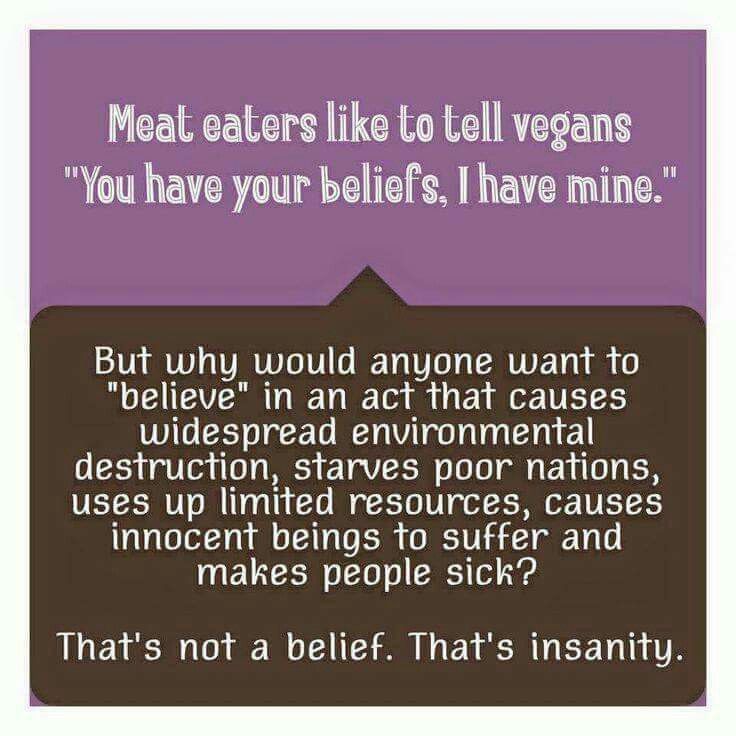Veganism-Environmental Guide and Nutrition in Species Ministry. VEGAN = LOVE FOR PEOPLE, ANIMALS, PLANET.
Translate
MISSION STATEMENT
"V-EGANISM educates people and helps people and animals regarding the political and social justice cause, Veganism, which is a philosophy and way of living which seeks to exclude--as far as is possible and practical--all forms of exploitation of, and cruelty to, animals for food, clothing, cosmetics, household products, entertainment, service or any other purpose; and by extension, promotes the development and use of animal-free alternatives for the benefit of humans, animals, and the environment."
Healthy Body, Mind & Spirit Maneki Neko Cat

Love & Peace Maneki Neko Cat

Animals Killed Counter
Animals Slaughtered:
0 marine animals
0 chickens
0 ducks
0 pigs
0 rabbits
0 turkeys
0 geese
0 sheep
0 goats
0 cows and calves
0 rodents
0 pigeons and other birds
0 buffaloes
0 dogs
0 cats
0 horses
0 donkeys and mules
0 camels and other camelids


Wednesday, February 25, 2015
Live And Let Live - Trailer
Monday, August 25, 2014
So, Why Become Vegan?
Tuesday, July 29, 2014
Psychological Factors Regarding the Environment
Thursday, July 24, 2014
Shopping to Help the Environment
Everyday choices can affect your family's health as well as the environment.
There's a growing trend among consumers to make choices reflecting the goals and values that matter to them most. So here are a few ideas for easy changes:
Starting with the products you use most frequently can be a simple way to shift your choices to a healthier place. Many hygiene products, such as soap, shampoo and toothpaste use unnecessary chemicals and animal ingredients that are harmful to our human body and, of course, cruel for the animal it was made from. Natural, cruelty-free (and not tested on animals) ingredients work just as well or better than the artificial/cruel variety, so look for options that don't rely on dyes, formaldehyde, parabens and animal ingredients. Ingredients with chemicals directly impact waterways once they go down the drain. More cruelty-free options can be kinder to your body, to animals and to the environment.
Cleaning products like floor polish, glass cleaners, and bathroom disinfectants can be harsh and tested on animals. Consider gentler, cruelty-free alternatives.
Even if your foods are vegan/cruelty-free, certain food products can contain artificial sweeteners or use pesticides. Try switching to less processed foods and buying organic when possible. Look for locally sourced foods for added freshness and to reduce overall carbon footprint in transit.
Companies with smart environmental policies do exist. Do your research and support brands that work to lessen their environmental impact, and take pride in the quality of their ingredients, which should be listed in full on the packaging.
Brands like Tom's of Maine, which makes personal care products like soap, deodorant and toothpaste, as well as others, share their progress in helping the planet by publishing goals and results to the public. They recently released their second edition of the Tom's of Maine Goodness Report that details the company's approach to ingredients, packaging, waste, water, energy, the community, and its employees. For example, the company has opted to use steam capturing technology, ultimately reducing water usage. Cartons used for packaging toothpaste are made of 100 percent recycled paperboard and can be recycled again after use. The company is even looking into future "smart packaging" alternatives, such as biodegradable packaging made of potato starch.
Seek out a list of simple and understandable renewable and naturally-sourced ingredients. Also, inspect the material on which it's printed. Minimal packaging made of recyclable materials is ideal.
If your town doesn't take in a wide range of waste for recycling, TerraCycle is an innovative USA based up-cycling leader that enlists volunteers to recycle waste to make products such as benches, picnic tables or deck materials, ultimately sending less to landfills.
The impact of a few simple changes can have a lasting ripple effect that goes well beyond your home and life.
Thursday, July 17, 2014
Buddhism and the Environment
"In an age of increasing environmental destruction, Buddhism can inspire the ecological awareness that’s necessary for a more balanced existence."
Below is a great article that ties Buddhist beliefs with a healthy environmental awareness:
Monday, May 5, 2014
A Sacred Duty: Applying Jewish Values To Help Heal The World
Produced by Emmy-Award-winning producer, director, writer, and cinematographer Lionel Friedberg's, A Sacred Duty discusses issues on global warming, but it goes beyond that by showing how religious responses can make a major difference and why a shift toward a plant-based diet is an essential part of efforts to reduce global climate change and other environmental threats.
Friday, May 2, 2014
10 Environmental and Animal Activists Who Were Killed for Taking a Stand
Supporting veganism in the face of overwhelming and powerful opposition can be a courageous and sometimes dangerous act. For many activists, unfortunately, taking a stand for what’s right becomes the last thing they ever do.
Friday, March 8, 2013
F.A.A.R.M.'s Expertise is Helping You LIVE!
Professional Service |
| I will help you to understand abolitionary veganism, and veganism as a whole, which is about diet, ethics and the environment, but it's mainly about ethics. While being vegan is mostly about ethics, I'll show you how all three can not be separate, as being vegan is about saving animals, humans and the entire planet. I will offer recipes, and suggest places as to where you can get very affordable vegan items of food, clothing and cosmetics, both online and offline. Proceeds from my services will go towards helping stray/rescued animals get fed, spayed or neutered and to help guardians take great care of their companion animals by providing healthy nutrition and great information for them as needed.
So happy with the "virtual office"! F.A.A.R.M. is looking
forward to serving you!
|
Wednesday, March 6, 2013
Defining Vegetarianism and Veganism
I just posted the message below at a blog which asked the question:
"Are Dietary Vegans Vegan At All?"
My response:
A person who only doesn’t eat animal products (and is not ethical or environmental) is a vegetarian–at best, a strict vegetarian. If they chose to only not eat meat then they are a lacto-ovo vegetarian.
Vegetarianism, by definition, in ANY way, shape or form is about health/diet only.
It has ALWAYS been this way by original definition.
We vegans are part of the cause of why the word vegan is now erroneously defined these days. When you go to vegan sites, what do you mostly read about? FOOD. Vegans themselves add to the erroneous way in now what the media and celebs thinks of as veganism being just about what one eats.
Also, veganism is not a “lifestyle” (as some vegans even say). Veganism is a life. Period. And a life is more than just food.
Related article:
Is Veganism a Religion Under Anti-Discrimination Law?




